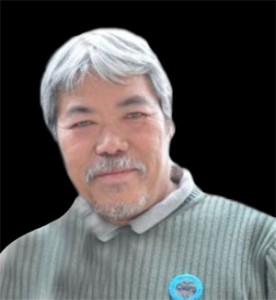“it is not the end of my journey”
 The founding editor of Bhutan Today, K B Lama, has recently left the country’s first daily newspaper. He talked to Business Bhutan reporter Phurba D Dorji about his experience and the print media in the country.
The founding editor of Bhutan Today, K B Lama, has recently left the country’s first daily newspaper. He talked to Business Bhutan reporter Phurba D Dorji about his experience and the print media in the country.
Q. How has the print media evolved over the years?
A. The biggest revolution in the print media was the entry of private newspapers in the country in 2006 as a precursor to democracy. The private newspapers were very enthusiastic to explore new horizons and they did.
Media has been described as the fourth arm of the government and people look up to the media with respect.
Despite having problems like the shortage of manpower and revenue, it didn’t deter the new newspapers and they shouldered their role with enthusiasm and responsibility.
Privatization led to competition and every new entrant had to come up with new and innovative ideas. For example, Business Bhutan came after Bhutan Today to cater to the business community.
Q. As the editor of Bhutan Today for the past one and half years, how was it to steer the first daily newspaper in the country?
A. Starting a daily like Bhutan Today was a very ambitious program. In fact, people always asked me, “Are there enough news in Bhutan to fill the newspaper pages?” But once Bhutan Today started publishing, we realized there were enough events taking place but the challenge was to know where and when it was taking place.
As a result, the first newspaper in the country – Kuensel – which had been in existence for the last 43 years, also decided to go daily.
Initially, when we started the paper, the team broke their teeth into it. The whole team contributed a lot to taking out publications daily. We stayed late into the night preparing for the next publication everyday and had to be back for the daily meeting in the morning the next day.
Everyone was very dedicated although one may say that they were not as good as expected. I think it was because the reporters were just out of college and needed some time to grow.
Q. Why did you leave Bhutan Today?
Well! Journalists, in general, are not as free as they should be. The proprietor or the owner always has the upper hand about how he runs the news company. This basically leads to a compromise in the quality and output and of course restrains journalists from giving in their best.
Q. Can you give any particular example?
With the introduction of new people in Bhutan Today, I thought it was not fair that the employees of the old team were given notice to leave the company as it has happened to some reporters. I think the management should have taken some time and evaluated them. The management could have set up specific goals and sacked them if the employees failed to achieve the set goals.
Q. What do you plan to do next?
I have come to the end of the road as far as Bhutan Today is concerned but this doesn’t mean end of the journey. There are yet more things in life to be exploited. At the moment I am happy working around my farm house at Jemina (an outskirt village in Thimphu).
Source: Business Bhutan
